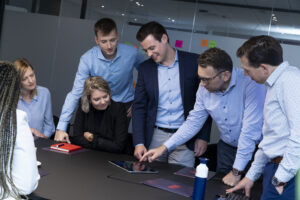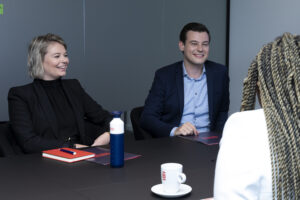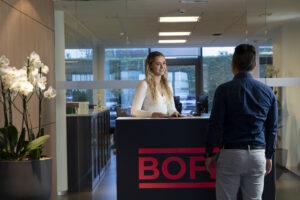On 27 December 2021, the Programme Law was approved, introducing a new tax regime for incoming taxpayers and incoming researchers. This regime has been in force since 1 January 2022. However, there has also been a lot of uncertainty regarding the practical application of the new regulation. On 6 May 2022, a detailed circular was published clarifying most of the ambiguities. We would like to take a closer look at the most important clarifications.
Application of the 30% rule
The biggest advantage of the new tax regime is the possibility of reimbursing expatriates for the recurrent costs resulting from their stay in Belgium, without this constituting taxable remuneration. These costs are paid out as expenses proper to the employer. The amount that can be paid out tax-free is maximum 30% of the gross annual salary, with an absolute maximum of € 90,000. However, there has been a lot of uncertainty about how the 30% rule should be applied in practice.
The new circular clarifies this: the tax-free allowances cannot be included as part of the gross salary but must be paid on top of the agreed gross salary. To be eligible for the regime, the incoming taxpayer’s gross salary (not including the tax-free allowances) must amount to at least € 75,000. If the employee receives an annual gross salary of € 75,000, a maximum of € 22,500 may be paid out in the form of expenses proper to the employer, so that the employee receives a total of € 97,500.
A notional deduction of 30% of the salary is not permissible, so it is not possible to add up a salary of €52,500 and expenses proper to the employer of € 22,500 to meet the minimum gross salary of € 75,000.
Thirty percent is a maximum limit. The employer may therefore choose to designate a lower amount as costs proper to the employer. If, for example, the employee receives a gross salary of € 100,000, the maximum amount that can be paid out tax free on top of this is € 30,000. The employer can also choose to pay only € 20,000 tax free. In addition, school fees for an international school, moving and installation costs can be reimbursed as costs proper to the employer on top of the 30% limit, but proof of these costs must be provided.
Furthermore, it is important that a payment in the form of expenses proper to the employer is established contractually. The employment contract and any appendices must therefore be amended in time for the employee to be able to enter the new tax regime.
Qualification of incoming researcher
The circular also clarifies the conditions for qualification as an incoming researcher. The original communication stated that, in addition to possessing a qualifying diploma, a researcher must carry out exclusively or primarily research activities. What, however, is considered to be ‘exclusively or primarily’?
The circular defines that incoming researchers must spend at least 80% of their working time on research activities to be able to benefit from the new tax regime. A researcher who also has a management position can therefore still perform minor administrative tasks and qualify as a researcher. Incoming researchers do not have to have a minimum gross annual salary of € 75,000. This condition only applies to incoming taxpayers.
Our Bofidi experts are pleased to help you
It is important to check for each employee or researcher individually whether they meet all the conditions and whether it is advantageous to switch to the new tax regime. Please note, too, that the application must be submitted by 31 July 2022 at the latest.
Do you still have specific questions about the new tax regime for incoming taxpayers and researchers and the various conditions? Then please do not hesitate to contact us. Our team of Bofidi experts will be pleased to help you.






